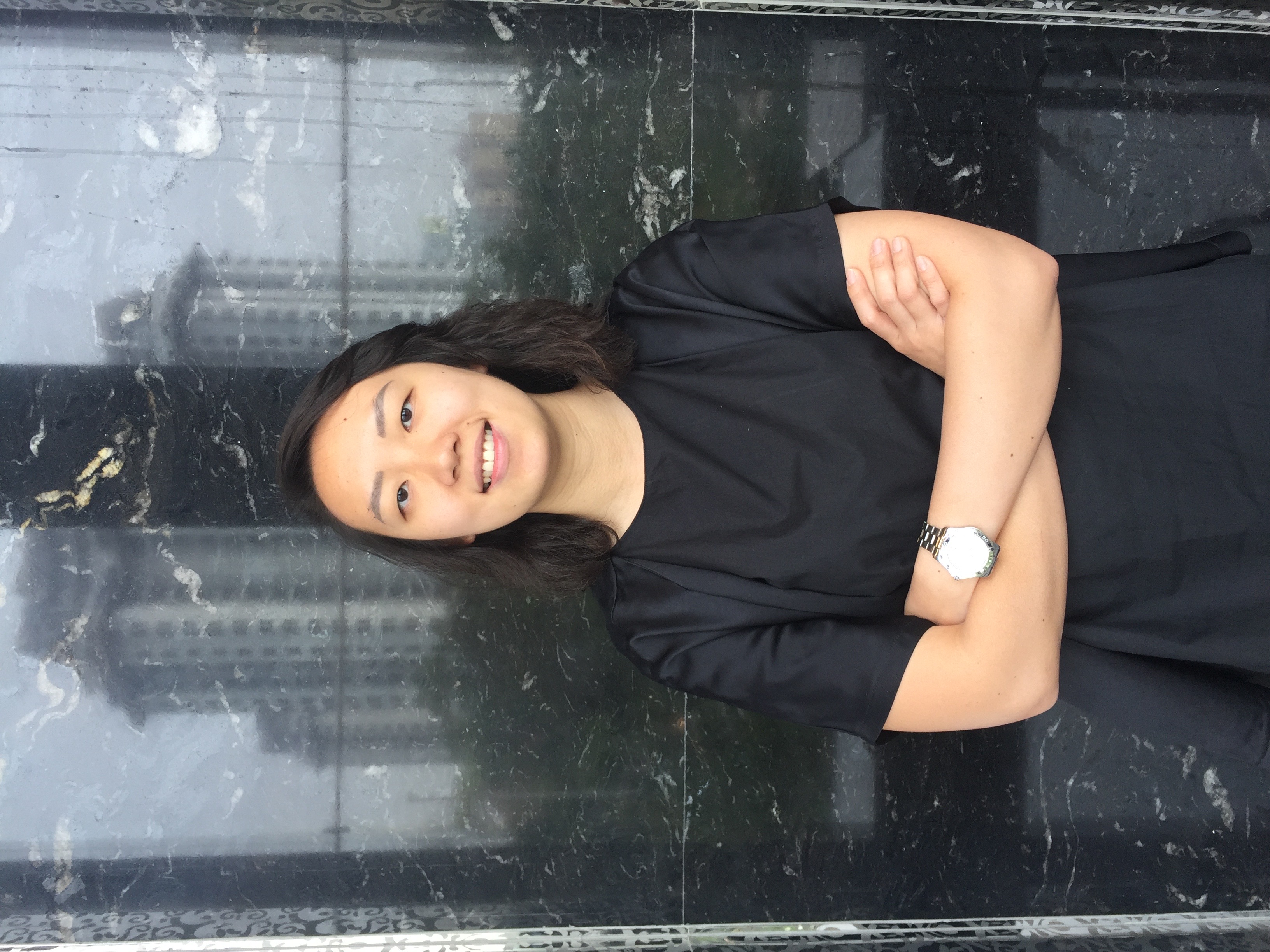Melia Winata
Melia Winata: Bachelor of Biomedicine, 2012. Co-Founder and CMO. Du Anyam, Indonesia
For Melia Winata (Bachelor of Biomedicine, 2012), COVID-19 has reinforced her passion for helping others through her thriving social enterprise, Du Anyam.
Du Anyam, or ‘mother’s weaving’ in Indonesian, was the result of a dream shared between three high school friends disillusioned by the state of women’s health in their home country. As co-founder and CMO, Melia Winata sought to create a social enterprise that empowered women, promoted culture, and improved the livelihood of vulnerable families in rural Indonesia. She first set her sights on Flores Island, East Nusa Tenggara in 2014, where the rates of malnutrition remain some of the highest in the region. Du Anyam works directly with female artisans living across fifty villages in the province to produce handicrafts. Not only does this provide sustainable income for these talented women, it also elevates and preserves the unique Indonesian wicker-crafting culture.
While today her vision is clear, Melia’s path into social entrepreneurship was not straightforward. She came to the University of Melbourne from Indonesia to broaden her knowledge, learn a new culture and educational system, and grow her independence. Studying the Bachelor of Biomedicine, Melia planned to continue her study and work in medical field. Upon returning to Indonesia in 2012, she spent some time working in the business sector and during that time started to ask herself what dreams or goals she wanted in life, before realising her “purpose in life, which is to empower women in rural areas in Indonesia.” While she shifted away from traditional biomedical fields, her priority has always been on women’s health and the understanding that financial independence is tightly linked to this.
As a young entrepreneur, Melia is familiar with the rapidly shifting business environment. Nonetheless, the spread of COVID-19 placed new demands on her team to adapt. Like many of us, the Du Anyam team have been working from home since mid-March. While remote work was an easy transition for her colleagues in Jakarta, digital accessibility in Indonesia is far from universal. “The bigger challenge,” she reflects, “is getting updates from our artisans, to check if they have enough personal protective equipment (PPE) such as masks, hand sanitizers, food supplies and other necessities, as they live in rural villages in the Eastern side of Indonesia, where logistics, health facilities and mobile coverage are still poor.”
This was not the only difficulty that arose with the COVID-19 crisis. For Du Anyam, the majority of sales were in wholesale transactions to other businesses supplying corporate merchandise and hotel amenities. However, with the cancellation of company events and the closure of hotels, Melia was forced to reconsider this business model. They decided to move sales online, focus on selling to individual consumers rather than businesses, and to develop cloth masks to respond to growing safety needs. Melia oversaw the complex transformation of their sales model across the various business functions. “We usually handled big volume orders where we pack fifty to a hundred items in a box,” she explains, “Now they need to pack each item in a nice-looking box with a ribbon on top for retail customers.” Such a shift inevitably impacts every element of operations.
It is a testament to Melia’s entrepreneurial expertise that she tackles these challenges with unrelenting optimism. “I see any obstacles as challenges rather than a closed door. That way, I believe that there is a solution to every single problem that we face in life.” Armed with this attitude, Melia has been able to identify an opportunity to expand her scope. Society’s inevitable shift to the digital domain in COVID-19 has crippled many traditional small businesses that are yet to develop the capacity for online operations. Melia is currently working on building a platform to enhance small-to-medium craft enterprises, providing them access to an online training series and mobile applications to enable them to upskill and operate digitally. Even in the midst of a global pandemic, Melia’s priority remains uniquely fixed on helping vulnerable people to succeed.
Reflecting on her journey at university, Melia encourages current students to “start searching for their purpose in life, either through an internship in your dream company or volunteering for organisations that you admire.” She believes wholeheartedly that everyone should “dream big”, as it is the foundation for thriving in your career and personal life. Undoubtedly, Melia’s own achievements exemplify the powerful impact that an individual dream can have. In just 5 years, Du Anyam has gone from empowering 8 women in 1 village, to over 1,100 women across 50 villages today. It is no surprise that Melia has been widely lauded for her achievements, including recognition by Forbes as one of the ’30 under 30’ Social Entrepreneurs in Asia.
Yet for Melia, she measures her success from a personal perspective.
“Success for me is when I could continuously bring positive impacts to other people's lives. Du Anyam is my current vehicle that will bring me to my definition of success by empowering women and improving the health and livelihood of women and children in rural areas in Indonesia.”
